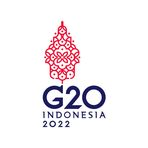G20 Summit in Rio: A Stage for Global Change Amidst Rising Tensions
November 19, 2024, 9:36 pm

Location: United States, District of Columbia, Washington
Employees: 10001+
Founded date: 2000
Argentina
Location: Argentina, Autonomous City of Buenos Aires, Buenos Aires
Employees: 1001-5000
Founded date: 2015

Location: Indonesia, Jakarta Special Capital Region
Employees: 51-200
Founded date: 2019
The G20 Summit in Rio de Janeiro is more than just a meeting of world leaders. It’s a crossroads where global ambitions meet harsh realities. As President Bola Ahmed Tinubu of Nigeria joins other heads of state, the world watches closely. The summit, held from November 18 to 19, is themed “Building a Just World and a Sustainable Planet.” This theme resonates deeply, especially in a world grappling with poverty, hunger, and climate change.
Tinubu’s arrival marks Nigeria’s growing role on the global stage. Accompanied by a diverse delegation, he represents a nation eager to engage in meaningful dialogue. His team includes ministers from various sectors, highlighting Nigeria’s multifaceted approach to development. The summit offers a platform for Tinubu to push for socio-economic reforms and strengthen international partnerships.
The backdrop of this summit is complex. The return of Donald Trump as president-elect of the United States looms large. His administration is expected to shift priorities, potentially sidelining critical issues like sustainable development and global governance reform. Brazilian President Luiz Inácio Lula da Silva, hosting the summit, faces the challenge of maintaining momentum on these topics amidst shifting political tides.
Security concerns also shadow the event. Just hours before the summit, gunfire erupted near a Rio slum, reminding everyone of the underlying tensions in the city. Brazilian authorities have ramped up security measures, deploying troops and armored vehicles to ensure the safety of delegates. This juxtaposition of high-level discussions against a backdrop of local unrest paints a vivid picture of the challenges facing global leaders.
The G20, comprising 19 nations and the European Union, is a powerful collective. It represents the world’s major economies, including the United States, China, and Brazil. The African Union’s participation signifies the increasing influence of African nations in global governance. As the summit unfolds, discussions will focus on pressing issues like food security, climate change, and economic inequality.
Lula’s agenda emphasizes the elimination of extreme poverty by 2030. He aims to address hunger and inequality, issues that resonate deeply in Brazil and beyond. However, the potential for Trump’s policies to disrupt these discussions is palpable. His administration’s focus on tax cuts and trade wars could derail Lula’s ambitions for a more equitable global economic framework.
The summit also serves as a stage for bilateral meetings. Tinubu is expected to engage with other leaders to further Nigeria’s interests. These discussions could pave the way for new partnerships and investments, crucial for Nigeria’s economic recovery. The stakes are high, and the outcomes of these meetings could shape Nigeria’s future.
China’s presence at the summit adds another layer of complexity. President Xi Jinping is likely to promote the Belt and Road Initiative, showcasing China’s economic influence. Brazil’s decision to stay out of this initiative has raised eyebrows, but it reflects a cautious approach to foreign partnerships. The tension between the U.S. and China is palpable, and the G20 could either exacerbate or alleviate these tensions.
Trade discussions will be a focal point. The potential for a renewed U.S.-China trade war looms large, with Trump’s plans to impose tariffs on imports. This could have ripple effects on global markets and trade relations. Brazil’s push for taxing the super-rich may also face resistance, particularly from Trump’s allies in Latin America.
As the summit progresses, the world will be watching. Will leaders find common ground on critical issues? Or will the shifting political landscape hinder progress? The G20 is a litmus test for global cooperation. It’s a chance for leaders to rise above national interests and work towards a sustainable future.
In the end, the G20 Summit in Rio is a microcosm of the world’s challenges. It’s a stage where leaders must navigate complex relationships and pressing issues. The outcomes will resonate far beyond the conference halls. They will shape policies, influence economies, and impact lives.
As the sun sets over Rio, the stakes are clear. The world is at a crossroads. The decisions made here could define the future. Leaders must act with urgency and purpose. The time for talk is over. It’s time for action. The G20 Summit is not just a meeting; it’s a call to arms for a better world.
Tinubu’s arrival marks Nigeria’s growing role on the global stage. Accompanied by a diverse delegation, he represents a nation eager to engage in meaningful dialogue. His team includes ministers from various sectors, highlighting Nigeria’s multifaceted approach to development. The summit offers a platform for Tinubu to push for socio-economic reforms and strengthen international partnerships.
The backdrop of this summit is complex. The return of Donald Trump as president-elect of the United States looms large. His administration is expected to shift priorities, potentially sidelining critical issues like sustainable development and global governance reform. Brazilian President Luiz Inácio Lula da Silva, hosting the summit, faces the challenge of maintaining momentum on these topics amidst shifting political tides.
Security concerns also shadow the event. Just hours before the summit, gunfire erupted near a Rio slum, reminding everyone of the underlying tensions in the city. Brazilian authorities have ramped up security measures, deploying troops and armored vehicles to ensure the safety of delegates. This juxtaposition of high-level discussions against a backdrop of local unrest paints a vivid picture of the challenges facing global leaders.
The G20, comprising 19 nations and the European Union, is a powerful collective. It represents the world’s major economies, including the United States, China, and Brazil. The African Union’s participation signifies the increasing influence of African nations in global governance. As the summit unfolds, discussions will focus on pressing issues like food security, climate change, and economic inequality.
Lula’s agenda emphasizes the elimination of extreme poverty by 2030. He aims to address hunger and inequality, issues that resonate deeply in Brazil and beyond. However, the potential for Trump’s policies to disrupt these discussions is palpable. His administration’s focus on tax cuts and trade wars could derail Lula’s ambitions for a more equitable global economic framework.
The summit also serves as a stage for bilateral meetings. Tinubu is expected to engage with other leaders to further Nigeria’s interests. These discussions could pave the way for new partnerships and investments, crucial for Nigeria’s economic recovery. The stakes are high, and the outcomes of these meetings could shape Nigeria’s future.
China’s presence at the summit adds another layer of complexity. President Xi Jinping is likely to promote the Belt and Road Initiative, showcasing China’s economic influence. Brazil’s decision to stay out of this initiative has raised eyebrows, but it reflects a cautious approach to foreign partnerships. The tension between the U.S. and China is palpable, and the G20 could either exacerbate or alleviate these tensions.
Trade discussions will be a focal point. The potential for a renewed U.S.-China trade war looms large, with Trump’s plans to impose tariffs on imports. This could have ripple effects on global markets and trade relations. Brazil’s push for taxing the super-rich may also face resistance, particularly from Trump’s allies in Latin America.
As the summit progresses, the world will be watching. Will leaders find common ground on critical issues? Or will the shifting political landscape hinder progress? The G20 is a litmus test for global cooperation. It’s a chance for leaders to rise above national interests and work towards a sustainable future.
In the end, the G20 Summit in Rio is a microcosm of the world’s challenges. It’s a stage where leaders must navigate complex relationships and pressing issues. The outcomes will resonate far beyond the conference halls. They will shape policies, influence economies, and impact lives.
As the sun sets over Rio, the stakes are clear. The world is at a crossroads. The decisions made here could define the future. Leaders must act with urgency and purpose. The time for talk is over. It’s time for action. The G20 Summit is not just a meeting; it’s a call to arms for a better world.